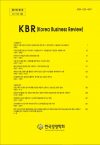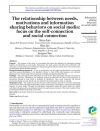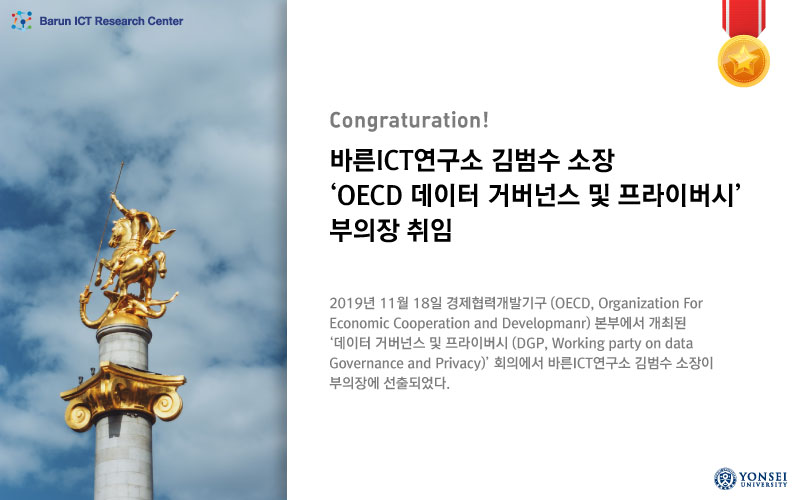박용완, 허정 “프로스펙트 이론 (Prospect Theory)과 심적 회계 (Mental Accounting)을 이용한 신용카드 보상프로그램의 설계” 한국경영교육학회 춘계학술대회 발표 (2015년 5월 8일 대전 카이스트에서 개최)
내용요약: ICT의 발전으로 인해 여러 신용카드를 비교하여 혜택만 받고 다른 카드들을 이용하는 체리픽커 (Cherry Pickers)가 많아졌다. 이를 방지하기위해서 고객보상프로그램으로서 현금할인보다는 포인트 적립이 효과적임에도 불구하고 소비자들은 현금할인을 선호하는 상황이다. 이를 극복하기 위해 본 연구는 현금할인과 포인트 적립를 함께으로 제공하는 복합적 고객보상프로그램을 제시하고 그 효과를 실증적으로 검증하였다.
요약
Kahneman and Tversky (1979)는 프로스펙트 이론을 통해 준거점(reference point)을 기준으로 하여 손실과 이익으로 인지하며 손실을 이익보다 더욱 크게 느낀다는 손실 회피(loss aversion)를 주장하였다. Thaler (1985)는 돈의 성격이나 형태에 따라 마음속에 계정을 형성하고 다르게 인식하는 심적 회계(mental accounting)와 이익과 손실이 복합적으로 발생하는 경우 효용을 극대화할 수 있는 쾌락적 편집(hedonic editing)의 심적 회계 원칙을 주장하였다. 본 연구는 이러한 소비자 의사결정이론을 바탕으로 현재 신용카드 회사들이 제공하고 있는 고객보상프로그램을 어떻게 설계하는 것이 효과적인지를 제시하고자 하였다.
ICT의 발전으로 여러 신용카들 비교하고 혜택만 챙기는 체리픽커(Cherry Pickers)를 방지하고 자사로 고착화시키기 위해서는 현금할인보다는 포인트 적립이 효과적이나, 카드사용자들은 현금할인을 선호하고 있다. 프로스펙트 이론과 심적 회계에 따르면, 손실이 크고 이득이 작은 경우는 손실과 이득을 분리하는 것이 소비자 효용을 극대화할 수 있기에, 이론적으로는 포인트 적립이 가장 효과적이어야만 한다. 신용카드 회사들이 제공하는 3가지 고객보상프로그램인 현장할인, 청구할인, 포인트 적립과 본 연구에서는 제시하는 현금할인+포인트를 동시에 제공하는 복합 보상프로그램을 비교하고 그 효과를 검증하였다.
실험 1의 결과, 포인트 적립은 현장 할인, 청구할인, 복합보상보다 덜 선호됨을 확인할 수 있었다. 실험 2를 통해 현금할인에서 포인트 적립으로 고객보상프로그램의 형태를 변경하는 경우, 현상 유지 편향 (status quo bias)으로 인해 현금할인 혹은 포인트 적립 유형을 그대로 유지하는 경우보다 선호도가 낮은 것을 확인할 수 있었다. 그러나 현금할인과 포인트 적립을 동시에 제공하는 복합보상 형태로 변경하면 포인트 적립으로 변경하는 경우보다 선호도가 상대적으로 덜 감소하였다. 또한 유용성과 편의성이 이러한 고객보상 유형과 선호도 사이를 매개한다는 사실도 확인할 수 있었다. 이러한 결과를 바탕으로 고객보상프로그램을 설계할 때 복합적 고객보상프로그램 방식이 만족도를 떨어뜨리지 않으면서 동시에 고객 고착화를 유도할 수 있다는 시사점을 기술하였다.
영문초록
Kahneman and Tversky (1979) demonstrate that consumers make judgement and decision based on the value of gains and losses rather than final outcomes (reference dependence) and loses has greater impact than corresponding gains (loss aversion). Thaler (1985) also proposes mental accounting that consumer categorize and treat money differently and the hedonic editing how consumers encode multiple events to maximize their utility. This paper aimed to examine how credit card companies design the consumer reward program based on these theories.
Because of Information Technology, consumers easily make comparisons among benefits of many credit cards and become cherry pickers. Although reserving points would be effective to prevent cherry pickers, consumers prefer discount to reserving points. Currently credit cards companies operates 3 different reward programs (instant discount, discount on the monthly bill, reserving points). Prospect theory and mental accounting argue that mixed loses should be separated for maximizing their utility. If true, consumers would prefer reserving points because points and cash are categorized differently. In addition, prospect theory suggests that multiple gains should be presented separately, so we propose an alternative program, combining discount with reserving points (called as combo program).
In Experiment 1, preference toward reserving points was less than that toward other reward programs (instant discount, discount on the monthly bill, combo program). In Experiment 2, we found that consumer preference decreased when credit card companies changed reward program from discounts to reserving points, compared to when keeping current programs, and it was due to the status quo bias. When the changing program is combo program rather than reserving points, the decline of consumer preference was relatively less. Also, these effects were mediated by usefulness and convenience. Reserving points program is an important way to prevent cherry-pickers, so these results imply that combo program could hold consumers without scarifying consumer satisfaction.






